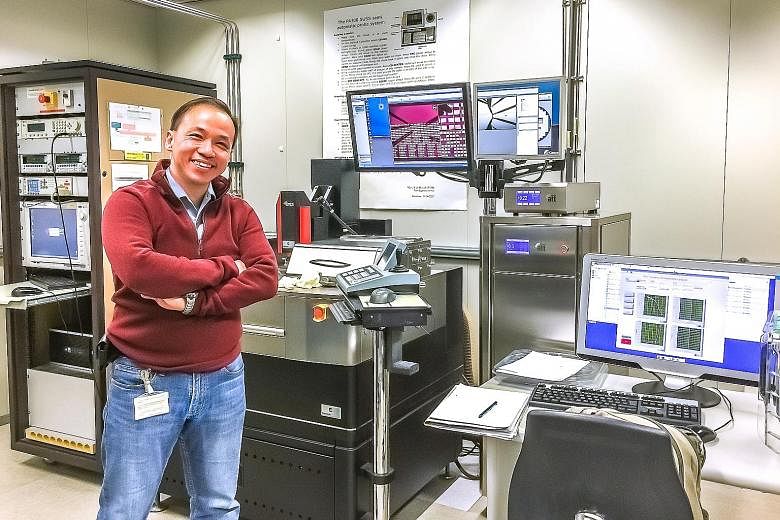It's a little-known fact but the transistor in that tablet or smartphone you are using was probably invented by a Singapore scientist.
Between 2007 and 2008, Dr Aaron Thean and his team at tech giant IBM used novel materials, like hafnium oxide, to make the transistor.
It has since been used to make more efficient microprocessors in smartphones and tablets from Apple and Samsung.
"It's actually quite amazing to think that what we worked on became one of the most prevalent (technologies) used around the world," said Dr Thean, who has 50 patents in the United States, and published over 200 technical papers.
The 44-year-old expert in advanced electronics - and serial inventor - is bringing his talent home under the Returning Singaporean Scientists Scheme. In May, he will start his new position as Professor of Electrical Engineering at the National University of Singapore.
Though Dr Thean, who earned his undergraduate and post-graduate degrees in electrical engineering at the University of Illinois at Urbana-Champaign, has lived abroad for more than two decades, moving back was not a difficult decision.
There were two reasons, including Mum and Dad, who are both in their 70s. "They missed me but it was also for my career. What motivated me to come back was the vision of a smart nation," said Dr Thean, currently vice-president of Process Technologies and director of Logic Devices Research at Belgium-based nanoelectronic research institute IMEC. His work for IMEC also involves coming up with next-generation technologies that can be used in electronic devices 10 to 15 years from now.
So the plan announced by Prime Minister Lee Hsien Loong in 2014 to turn Singapore into the world's first smart nation, integrating technology, networks and databases to transform the way people live, work and play, is right up his alley.
"Singapore is unique because we have a national effort to build the country into a smart nation. This means that we have fundamental support from the Government which is an edge over the United States or Europe, for instance, where such efforts occur only in the private sector," said Dr Thean.
In his new position, he hopes to build strong ties between the industry and academia so that scientific innovations can be translated into real-world applications.
Work aside, Dr Thean, who is married and has a 12-year-old son, said it will be a period of adjustment for him and his family after so many years of being away.
"My son was born in the States so this is completely new for him," said Dr Thean, who has lived in Belgium, New York and Texas. "Due to my work, we've been citizens of the world, so I'm sure we'll adjust."
Of the Returning Singaporean Scientists Scheme, he said it is important to have a diverse research community in Singapore. Singaporeans who had immersed their work and lives in a different culture can bring home unique experiences that may enable fresh collaborations and new directions, he said.


